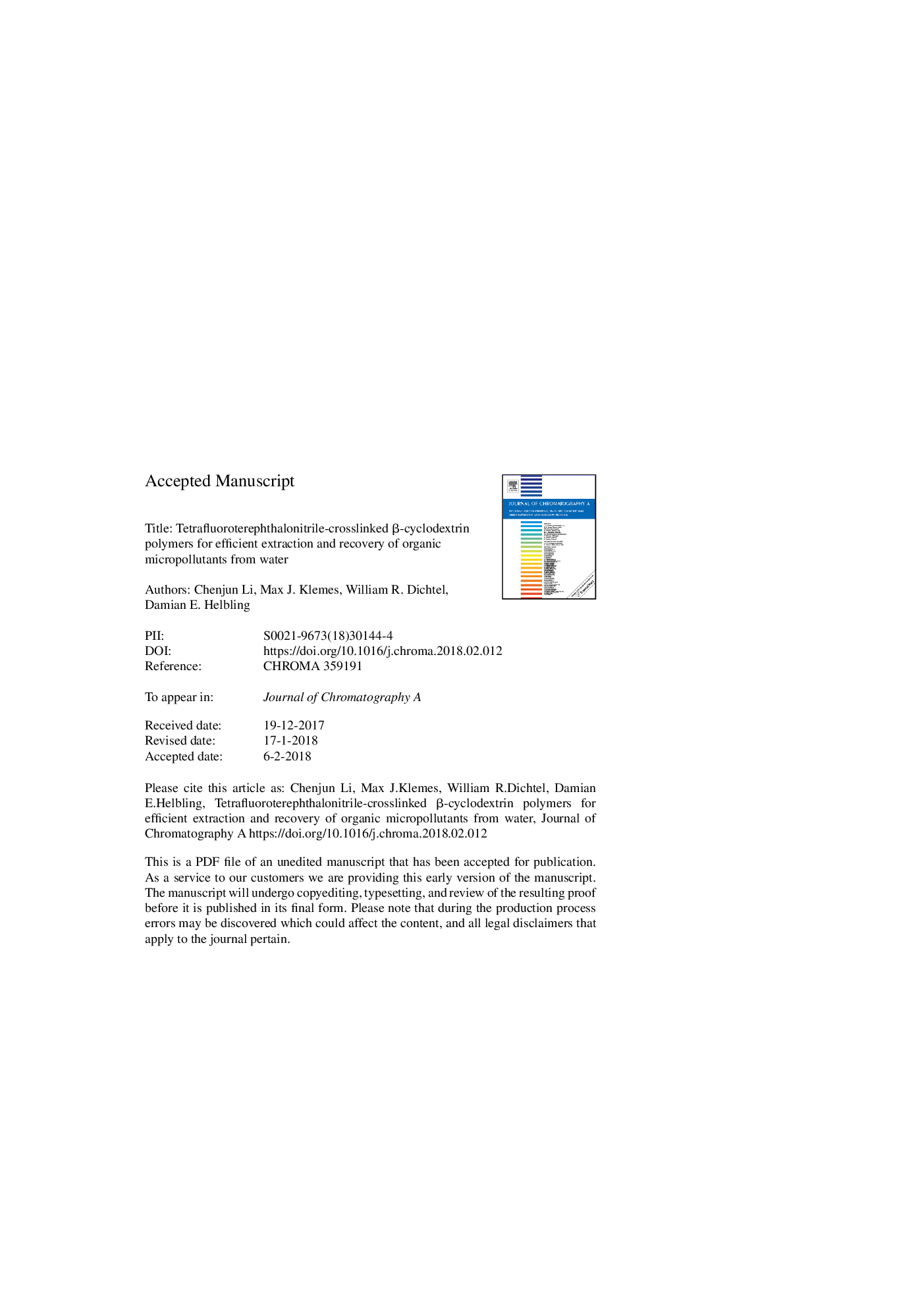| Article ID | Journal | Published Year | Pages | File Type |
|---|---|---|---|---|
| 7608644 | Journal of Chromatography A | 2018 | 19 Pages |
Abstract
In this study, we evaluated the performance of a novel tetrafluoroterephthalonitrile-crosslinked β-cyclodextrin polymer (TFN-CDP) as a solid-phase extraction (SPE) material for the recovery of up to 189 diverse organic micropollutants (MPs) from water. The optimized extraction procedure requires loading of water samples adjusted to a pH of 3 onto 500â¯mg of TFN-CDP packed into an SPE cartridge. Under these conditions, 88.7% of the MPs have average extraction efficiencies greater than 80%. The optimized recovery procedure requires elution with 15â¯mL of methanol amended with 15â¯mg of calcium chloride. Under these conditions, 58.4% of the MPs have average absolute recoveries between 80% and 120%. We compared the performance of the optimized SPE method for TFN-CDP with a previously optimized SPE method employing hydrophilic-lipophilic balance (HLB) adsorbents in nanopure water and in wastewater-impacted surface water. The data indicate that the optimized TFN-CDP method performs as well as or better than the optimized HLB-based SPE method. These findings represent an important step forward in the development of sustainable and inexpensive materials for the extraction and recovery of organic MPs from water.
Related Topics
Physical Sciences and Engineering
Chemistry
Analytical Chemistry
Authors
Chenjun Li, Max J. Klemes, William R. Dichtel, Damian E. Helbling,
